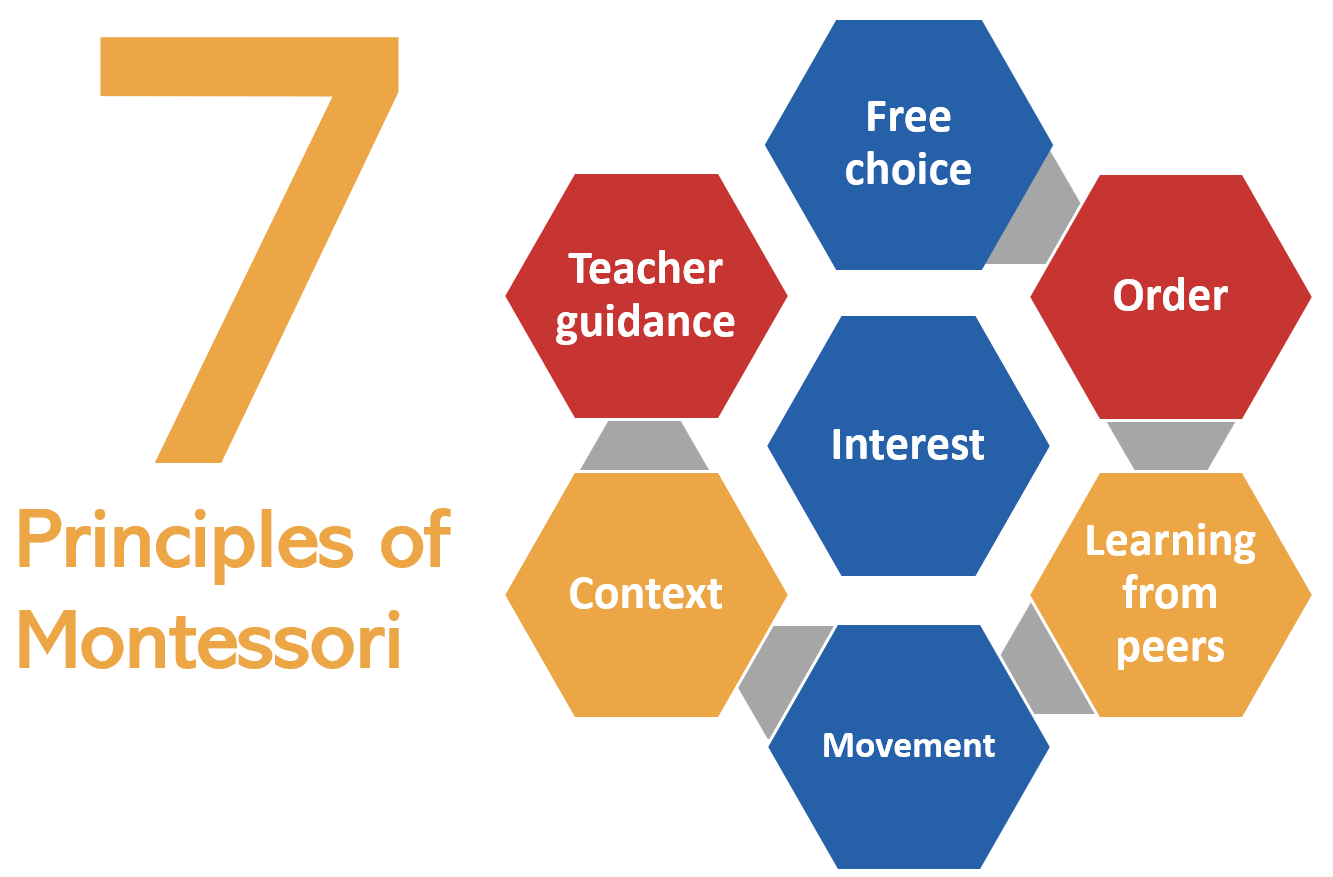
Nurturing Holistic Childhood Development through Montessori Philosophy Principles
Montessori education, developed by Dr. Maria Montessori, has long been celebrated for its unique philosophy and principles that prioritize the holistic development of children. In this article, we explore the fundamental tenets that form the backbone of Montessori philosophy and their profound impact on childhood education.
A Child-Centric Approach: Putting the Child at the Center
At the core of Montessori philosophy is a child-centric approach that recognizes the individuality of each child. The philosophy emphasizes that children are natural learners and, given the right environment and tools, can unfold their potential at their own pace. This approach fosters a love for learning and encourages children to explore and discover the world around them.
The Prepared Environment: An Optimized Learning Space
Montessori classrooms are carefully designed as prepared environments that cater to the developmental needs of children. The layout, materials, and activities are thoughtfully chosen to encourage independence, exploration, and order. The prepared environment serves as a facilitator for self-directed learning, allowing children to engage with their surroundings in a purposeful and meaningful way.
Montessori Materials: Tools for Sensorial and Cognitive Development
Montessori materials are a hallmark of the philosophy, designed to stimulate a child’s senses and promote cognitive development. From the iconic pink tower to the movable alphabet, these materials are not just educational tools but aids that guide children through various concepts such as mathematics, language, and sensorial experiences. Each material is meticulously crafted to serve a specific purpose in the child’s learning journey.
Freedom within Limits: Cultivating Independence and Responsibility
Montessori philosophy advocates for a balance between freedom and responsibility. Children are given the freedom to choose their activities within a structured environment, fostering independence and decision-making skills. This approach not only empowers children but also instills a sense of responsibility for their actions, creating a positive and respectful learning community.
Mixed-Age Classrooms: Fostering Collaboration and Mentorship
Montessori classrooms often feature mixed-age groups, allowing younger children to learn from older peers and vice versa. This dynamic fosters collaboration, mentorship, and a sense of community. Older children become role models, reinforcing their own understanding of concepts by teaching, while younger children benefit from guidance and inspiration.
Uninterrupted Work Periods: Facilitating Deep Concentration
Montessori classrooms incorporate uninterrupted work periods, allowing children to engage in activities for extended periods without interruption. This practice promotes deep concentration, focus, and the development of a strong work ethic. It recognizes that meaningful learning often occurs when children are fully engrossed in their tasks.
Observation and Individualized Guidance: Understanding Each Child
Montessori educators are trained to be keen observers, closely monitoring each child’s progress and interests. This observation allows for individualized guidance, tailoring the learning experience to meet the specific needs and interests of each child. It ensures that educators provide the right level of challenge and support for optimal development.
The Three-Year Cycle: Consistency and Stability
Montessori classrooms typically operate on a three-year cycle, with children staying in the same class for three consecutive years. This structure provides consistency, stability, and a sense of community. It allows for strong teacher-child relationships to develop and enables educators to gain a deep understanding of each child’s unique qualities and learning style.
Cultivating a Love for Learning: The Lifelong Impact
The ultimate goal of Montessori philosophy is to cultivate a love for learning that extends beyond the classroom. By nurturing qualities such as curiosity, creativity, and self-motivation, Montessori education equips children with the tools they need to become lifelong learners, critical thinkers, and compassionate individuals.
To explore the transformative impact of Montessori Philosophy Principles on childhood development, visit www.igaseng.com. Immerse your child in an educational experience that prioritizes holistic growth and sets the foundation for a lifelong love of learning.

